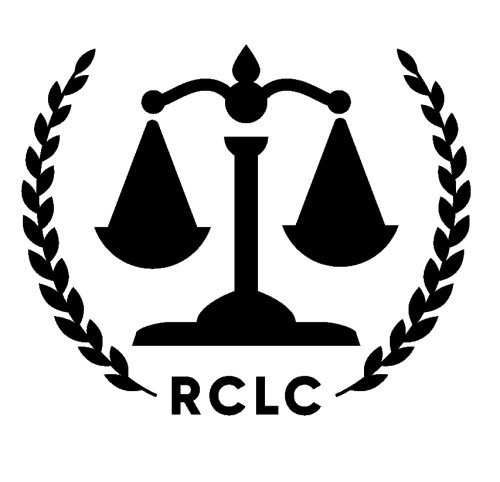Best Military Divorce Lawyers in Harare
Share your needs with us, get contacted by law firms.
Free. Takes 2 min.
Free Guide to Hiring a Family Lawyer
List of the best lawyers in Harare, Zimbabwe
About Military Divorce Law in Harare, Zimbabwe
Military divorce refers to the dissolution of marriage where one or both parties are members of the military. In Harare, Zimbabwe, military divorces follow the same legal procedures as civilian divorces, but they may involve additional considerations due to the unique nature of military service. These might include issues around spousal support, division of military pensions, and custody arrangements, especially if one party is on deployment.
Why You May Need a Lawyer
While any divorce can be complicated, military divorces can present unique challenges. These could range from understanding and exercising your rights to handling cross-border disputes if a party is stationed abroad. Here are common situations where hiring a lawyer would be beneficial:
- Complex negotiations involving military pensions and benefits.
- Disputes over child custody, especially with a parent in service.
- Understanding and applying correct legal procedures within military jurisdiction.
- Handling divorce proceedings while one party is deployed or overseas.
Local Laws Overview
In Zimbabwe, the Matrimonial Causes Act governs divorce. While the same legal provisions apply to both military and civilian divorces, military divorces often require additional attention to matters such as pensions and benefits. The Zimbabwe Defence Act also outlines specific rights and obligations of military personnel, which can impact divorce proceedings. Key considerations include:
- The distribution of military pensions and benefits must comply with both military policy and civil law.
- Residency requirements for initiating divorce can be impacted by deployment status.
- Legal processes for serving divorce papers can differ if a spouse is stationed abroad.
Frequently Asked Questions
1. Can I file for divorce if my spouse is deployed?
Yes, you can file for divorce if your spouse is deployed. However, there may be delays in proceedings due to deployment or the need for special procedures to serve legal documents.
2. How are military pension and benefits divided in a divorce?
The division of military pension and benefits is determined by both civil family law and military regulations. It's advised to consult with a lawyer familiar with these matters.
3. Do I have to attend court if I'm stationed overseas?
If you are stationed overseas, your attorney can often represent your interests in court. Video conferencing may also be an option in some cases.
4. What considerations are there for child custody when one parent is in the military?
Custody arrangements need to account for deployment schedules and relocation. Courts prioritize the best interests of the child, which usually requires crafting a flexible parenting plan.
5. Are there special residency requirements for military divorce in Zimbabwe?
Typically, the spouse filing for divorce must reside in Zimbabwe. The law also allows considerations for those in military service abroad.
6. Can military spouses receive spousal support?
Yes, military spouses can be awarded spousal support, determined by similar criteria used in civilian cases, such as the length of the marriage and individual financial need.
7. What happens if a service member does not respond to divorce papers?
Non-response can delay the proceedings but eventually can lead to a default judgment in favor of the filing spouse. Legal counsel is crucial in such situations.
8. How long does a military divorce take?
The time frame varies depending on the complexity of the case, agreement between parties, and involvement of international jurisdictions if a party is stationed abroad.
9. Do military protections impact divorce proceedings?
Yes, certain protections like the Soldiers' and Sailors' Civil Relief Act can delay proceedings, especially if active duty affects a party's ability to participate.
10. Are there specific lawyers for military divorces?
Yes, it is beneficial to hire lawyers with expertise in military law to navigate the additional complexities in military divorces.
Additional Resources
Assistance can be found through various channels, including:
- The Zimbabwe Defence Forces (ZDF): Offers guidance and resources for military personnel facing family law issues.
- Legal Aid Clinics: Some provide free consultation services for those in the military seeking divorce advice.
- Military Advocacy Forums: Online communities and non-profits often provide support and shared experiences for military divorces.
Next Steps
If you require legal assistance with your military divorce, consider the following steps:
- Consult a specialized lawyer: Engage with an attorney who is knowledgeable in both family and military law.
- Gather Documentation: Prepare all necessary military and financial documents to provide your lawyer a comprehensive view.
- Consider Counseling: Family counseling services can provide support through the emotional aspects of a military divorce.
- Stay Informed: Regularly check for updates on military-specific divorce regulations.
Lawzana helps you find the best lawyers and law firms in Harare through a curated and pre-screened list of qualified legal professionals. Our platform offers rankings and detailed profiles of attorneys and law firms, allowing you to compare based on practice areas, including Military Divorce, experience, and client feedback.
Each profile includes a description of the firm's areas of practice, client reviews, team members and partners, year of establishment, spoken languages, office locations, contact information, social media presence, and any published articles or resources. Most firms on our platform speak English and are experienced in both local and international legal matters.
Get a quote from top-rated law firms in Harare, Zimbabwe — quickly, securely, and without unnecessary hassle.
Disclaimer:
The information provided on this page is for general informational purposes only and does not constitute legal advice. While we strive to ensure the accuracy and relevance of the content, legal information may change over time, and interpretations of the law can vary. You should always consult with a qualified legal professional for advice specific to your situation.
We disclaim all liability for actions taken or not taken based on the content of this page. If you believe any information is incorrect or outdated, please contact us, and we will review and update it where appropriate.















